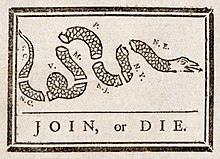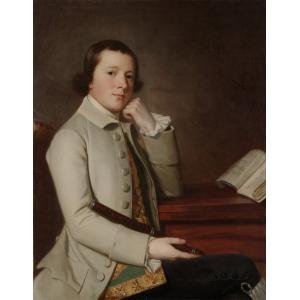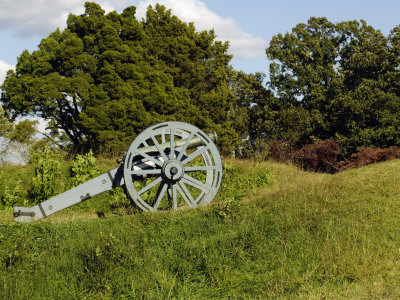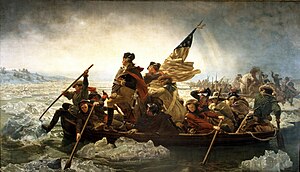Recently there has been a great deal of press about The Jefferson Bible. Tarcher, part of Penguin books, is publishing a new edition this month. While many news stations feel it pertinent to cover the story of The Jefferson Bible, we here at Lost and Founders continuously strive to tell you the untold stories.
Stories about Jefferson's Bible are a dime a dozen. Search on google and you'll find hundreds...thousands even. We did some deeper digging and discovered something far more dark.
The Bible was not the only book that Jefferson decided to 'cut apart'. After extensive research where we cross referenced books that were in our personal libraries against books that were impossibly hypotheitically capable of being in Jefferson's library we were able to discover some other books that Jefferson cut up. After reading Jefferson's version of 'The Hungry Hungry Caterpiller' we, quite literally, thought that it was his way of making the book more digestable; easier to consume. As 'The Hungry Hungry Caterpillar' was the only book that featured circular cuts we were quickly able to determine that it was an anomoly.
As 'The Guardian' notes: "The third US president's unwillingness to swallow miracles such as the virgin birth led him to cut out parts of the Gospels he did not agree with and compile his own version." It was this that got us started on the right path. It wasn't the Bible that Jefferson was looking at cutting apart, it was miracles. In Jefferson's day the genre of 'Miracle' books are what we would term today as High Fantasy or Science Fiction. Jefferson was making a very literaturagical statement with his cuttings. He was showing his distaste and condomenation of all things fantasmagorical.
It was through this line of thinking that we were lead to The Jeffer-Poo. Or Jefferson's version of Winnie the Pooh. Jefferson initially read Winnie the Pooh and was outraged. Stuffed animals becoming living and breathing characters. It was outrageous, it needed to be stopped. It was at this point that Jefferson rode on the back of his Cockatrice to the local supermarket where he purchased sugar-free Red Bull, a bottle of Rum and Gummy Bears. He soaked the gummy bears in the rum and proceeded to guzzle the sugar-free Red Bull. After slamming the can down and consuming 14 of the intoxicating gummy bears Jefferson slipped into a Maddened craze. He pulled out his copy of Winnie the Pooh and furiously began cutting and stripping out fantastical sections.
It was on this page that Jefferson had his greatest outburst (his notes are below):

'I mean come on. A teddy bear talking to a teddy donkey. What is this Disneyland? Nobody believes this crap anyways.' Unfortunately for Jefferson, in his Red Bull and rum induced excitement he had trimmed the picture to closely. He actually cut off Eeyore's original tail. The drama didn't end there. Washington was in town visiting the next morning and saw Jefferson's Recut photo. Washinton immediatly broke into hysterics. He looked at Jefferson, laughed and asked 'Seriously Tom, haven't you seen a donkey before, you know they have tails right?' Confused, Jefferson looked at the picture and tried to explain to Washington that the night before he had been taken a cockatrice to the supermarket and proceeded to trip out on a Red Bull/rummy bear induced haze. Jefferson thought that all was well until his birthday on April 13th.
Everyone was in attendance, Washington, Madison, Monroe, Adams even made the horseride down for the occasion. Little did he know Washington had devised a little game that none of them were willing to miss. It was then that Washington created what have come to know as 'Pin the Tail on the Donkey'. He proceeded to explain 'that T. Jizz had riding a cockamimi, or something or other, while drinking the urine of a red bull and eating bears that had been turned to jelly, and it was during this time that ol' Tommy Boy came up with this idea that donkey's don't have tails.' As a way to test TJ's knowledge of where a donkey's tail goes, they blindfolded him, handed him a donkey's tail and told him to pin it to his ass. Considering that they had pre-gamed with Washington's Rye Whiskey this game became quite entertaining as they chased one another around Monticello trying to 'pin tails' on one another. The boys took true pleasure in sending Jefferson the following photos on his birthday as a yearly reminder of his blunder.
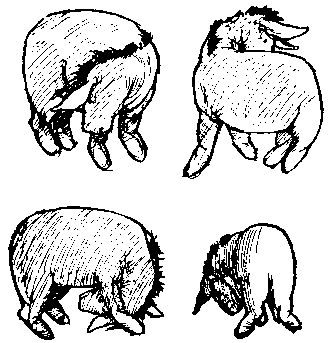
In a letter from Adams to Jefferson, 1825
Tom,
I've lost my tail, can you help me find it. What an idiot! Gah, idiot! Of course donkey's have tails.
Happy Birthday bro!
Johnny A.

In a letter from George Washington to Thomas Jefferson 1820:
T-Jizz,
Did you know that donkeys are actually born with bowties on their tails? Romans initially hypothesized that they learned how to tie bowties at a very young age, but we all know that would be impossible. Seriously though, do you like that picture? I did some extra copies so you can cut them out for next time we play 'pin the ass.'
Georgie Porgie
PS Don't take this as an opportunity to say shit about that cherry tree. I will end you if I hear a peep about a 'tree falling in the forest, will a politician write policy' joke. Jk. Jk. But seriously.
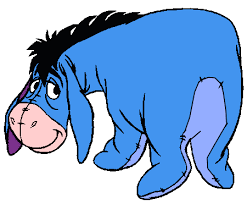
In a letter from James Madison to Thomas Jefferson - 1816:
Teedge,
I figured you would need something to cheer yourself up for the birthday. It's even in color, wook at that wittle face, he's soooo cute. I CAN HAZ TAIL BACK?! or YOU LOOKING AT MY BUM?
Happy Birthday man!
Mad I 'aint yo' son.






